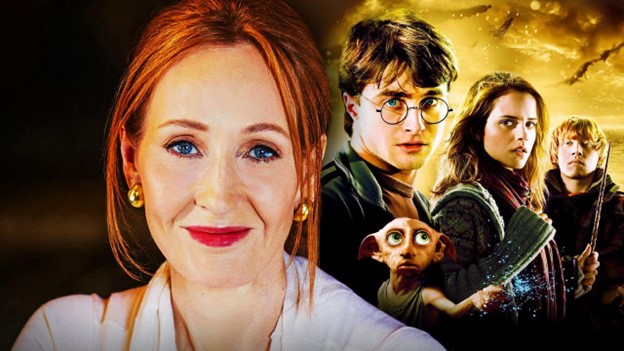
To listen to this reflection as a podcast, click here.
J.K. Rowling’s seven-volume series chronicling the adventures of Harry Potter is crowded with rich details.
Readers are treated to magic, mythical beasts, evil wizards, elves, wands, pet owls, a flying broomstick game called Quidditch, and over 200 named characters – all set against the backdrop of a group of British schoolchildren trying their best to navigate the choppy waters of childhood and adolescence.
When asked, Rowling has never hesitated to state what she thinks her series is all about.
The Harry Potter books are all about death.
That’s a surprising foundation for what has become, hands-down, the best-selling series in the history of literature – and not just kids’ literature. Sales have exceeded 600 million copies in 85 languages, leading Forbes to identify Rowling as the world’s first billionaire author – not to mention one of Britain’s most generous philanthropists.
No one saw it coming. Not even Rowling herself. Harry Potter was just an interesting idea that struck her during a long train ride in 1990. Her life unraveled over the next few years, as she experienced a “short and catastrophic” marriage, single parenthood, and subsistence living that left her hovering just a step away from homelessness.
During the writing of Harry Potter and the Philosopher’s Stone, the first of the seven volumes that hit bookshelves between 1997 and 2007, her mother died after a long battle with MS.
Rowling, awash with grief and loss, remembers, “I really think from that moment on, death became a central, if not the central theme of the seven books.” She adds, “All of my characters are defined by their attitude to death and the possibility of death.”
Harry gradually learns what it means to face his own mortality – and what he must be willing to do to save his dearest friends. Voldemort, his sworn enemy, is obsessed with obtaining immortality and callously uses his so-called friends. While Harry is a whole person, Voldemort is fragmented, having locked away parts of his soul in seven different places, hoping that death will never be able to catch up with him.
Rowling, to be sure, makes it clear that there is something stronger than death. That something is love.
An active member of the Scottish Episcopal Church, she doesn’t believe in magic or witchcraft. She states that the moral core of the Harry Potter books is “blindingly obvious,” and that she intentionally wove Christian themes into the storyline.
That becomes clear when Harry, at the age of 11, finally has the chance to interview Albus Dumbledore, his mentor, concerning his parents’ tragic deaths. Both were slain by Voldemort as they tried to protect Harry, their infant son.
How was it possible that he, a helpless child, survived that attack on his life?
Dumbledore says, “Your mother died to save you. If there is one thing Voldemort cannot understand, it is love. He didn’t realize that love as powerful as your mother’s leaves its own mark. Not a scar, no visible sign…to have been loved so deeply, even though the person who loved us is gone, will give us some protection forever.”
As God’s own children, we are marked by God’s own love. We are protected by God’s own sacrifice.
And by God’s own grace, most of us are gifted throughout our lives by the love of others who, in one way or another, choose to lay down their lives for us.
The apostle John makes that as plain as day: “This is how we’ve come to understand and experience love: Christ sacrificed his life for us. This is why we ought to live sacrificially for our fellow believers, and not just be out for ourselves” (I John 3:16).
“Love is strong as death,” says the Hebrew poet (perhaps Solomon) in Song of Songs 8:6.
Death may be the undercurrent on every page of Harry Potter, and the fear of death may seem to be hiding around every corner.
But death, in the end, falls short. Love wins.
That’s not just a fantasy story for kids, but the very heart of the Real World that all of us wake up to every day.
